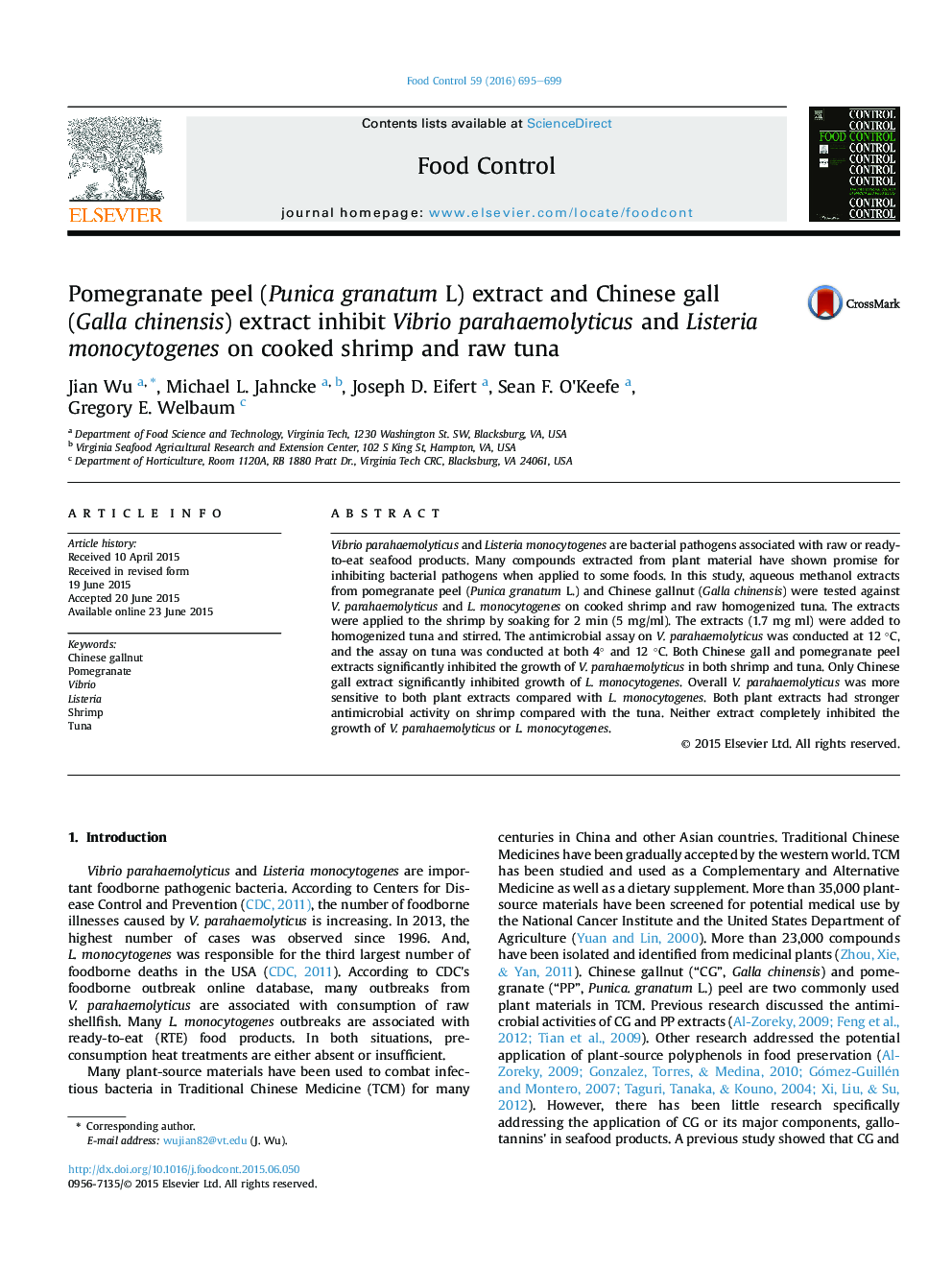| Article ID | Journal | Published Year | Pages | File Type |
|---|---|---|---|---|
| 6390679 | Food Control | 2016 | 5 Pages |
â¢Antibacterial tests of plant extracts cover both cooked and raw seafood.â¢Vibrio parahaemolyticus was significantly inhibited by both extracts.â¢Listeria monocytogenes was significantly inhibited by Chinese gall (CG) extracts.â¢Antibacterial property of extracts was interfered with protein content of the food.
Vibrio parahaemolyticus and Listeria monocytogenes are bacterial pathogens associated with raw or ready-to-eat seafood products. Many compounds extracted from plant material have shown promise for inhibiting bacterial pathogens when applied to some foods. In this study, aqueous methanol extracts from pomegranate peel (Punica granatum L.) and Chinese gallnut (Galla chinensis) were tested against V. parahaemolyticus and L. monocytogenes on cooked shrimp and raw homogenized tuna. The extracts were applied to the shrimp by soaking for 2 min (5 mg/ml). The extracts (1.7 mg ml) were added to homogenized tuna and stirred. The antimicrobial assay on V. parahaemolyticus was conducted at 12 °C, and the assay on tuna was conducted at both 4° and 12 °C. Both Chinese gall and pomegranate peel extracts significantly inhibited the growth of V. parahaemolyticus in both shrimp and tuna. Only Chinese gall extract significantly inhibited growth of L. monocytogenes. Overall V. parahaemolyticus was more sensitive to both plant extracts compared with L. monocytogenes. Both plant extracts had stronger antimicrobial activity on shrimp compared with the tuna. Neither extract completely inhibited the growth of V. parahaemolyticus or L. monocytogenes.
